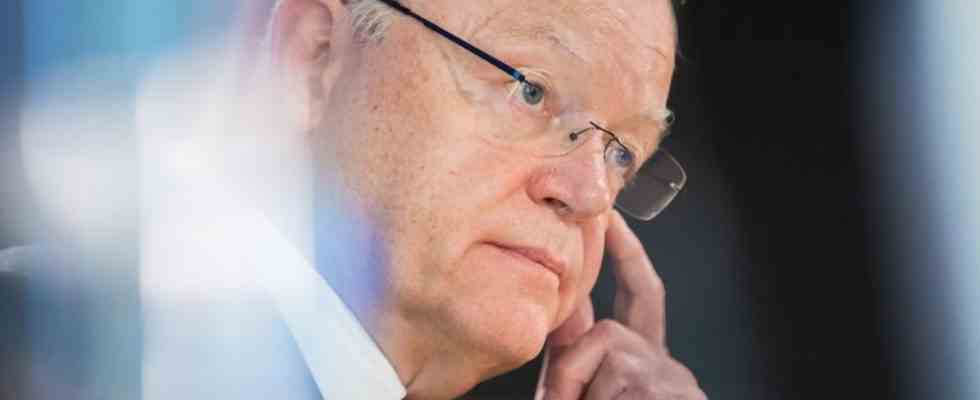Prime Ministers Conference
Refugees, energy, infrastructure: country heads advise
“The federal government must get more involved in this joint task, especially in favor of the municipalities,” says Lower Saxony’s Prime Minister Stephan Weil (SPD) about the costs of taking in refugees. photo
© Christoph Soeder/dpa
The Prime Ministers meet in Berlin without the Chancellor. In the end there should be a long wish list for the federal government – one question in particular involves a lot of money.
The heads of government of the federal states are meeting in Berlin today to discuss, among other things, the distribution of costs arising from the accommodation and care of refugees. The Prime Ministers’ Conference (MPK) takes place without the federal government. A federal-state summit with Chancellor Olaf Scholz (SPD) on relevant financing issues is only planned for May 10th.
Other topics of the MPK, which is currently chaired by Lower Saxony’s Prime Minister Stephan Weil (SPD), include the development of energy prices and the acceleration of planning and approval procedures. An overview:
refugees
Both the SPD and the Union are calling for the federal government to provide more money for taking in refugees. “The position of the states is clear: the federal government must get more involved in this common task, especially in favor of the municipalities,” said Weil. In the “Neue Osnabrücker Zeitung” he called for Germany to sign agreements with significantly more countries to take back rejected asylum seekers.
The federal government should not wait for initiatives from the European Union, but should take action itself. North Rhine-Westphalia’s Prime Minister Hendrik Wüst (CDU) recently called for Scholz to make financing refugee costs a top priority. The MPK is intended to help the federal states prepare for the federal-state summit in May.
energy
SPD politician Weil now sees great progress on the dominant topic of the federal-state meetings last fall and winter. The previous measures to relieve the energy crisis would not have failed to have an effect. “This applies both to the energy supply sector and to energy prices, which have calmed down significantly,” said the Lower Saxon. The task now is to advance the energy transition further without overburdening citizens financially.
infrastructure
The implementation of important infrastructure projects, such as the expansion of wind power for the energy transition, is not happening fast enough in many countries. At the beginning of February, for example, Weil proposed that permits for the construction of wind turbines would be automatically granted if the deadline for the procedure was exceeded. In front of the MPK he now said: “We are too complicated and too slow for many procedures. We have to become simpler and faster.”
His co-chairman Wüst said that the federal states are dependent on the cooperation of the federal government due to federal law. “The states have done their homework, their proposals are on the table,” said the CDU politician. “And although time is short, the federal government continues to let valuable time pass. Germany must become faster,” said Wüst. “It is ironic that the federal government is stepping on the brakes on this issue.”
natural hazards insurance
Last year, the federal states asked the federal government to draw up a specific regulation for compulsory insurance against natural hazards. However, the federal government advocated regulations at state level. Baden-Württemberg and North Rhine-Westphalia are now reportedly planning a new push with an initiative for the Bundesrat. The MPK will also deal with the topic again.
media
The state leaders could appoint a successor to Bavaria’s Prime Minister Markus Söder (CSU) on the ZDF board of directors. The CSU politician had resigned from his position on the control committee in December because of “extensive obligations in Bavaria”.

